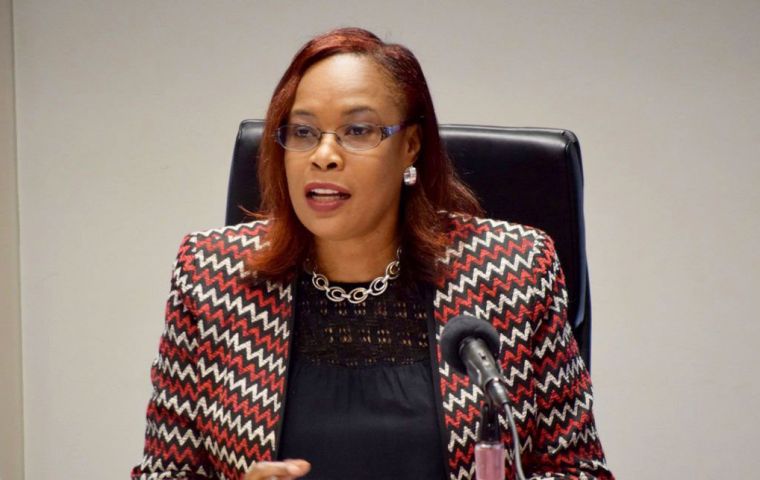MercoPress. South Atlantic News Agency
Three Caribbean nations blacklisted as tax havens by the European Union
 Financial Secretary Hilary Hazel insisted that St Kitts and Nevis was a committed and fully cooperative jurisdiction in the context of international tax transparency
Financial Secretary Hilary Hazel insisted that St Kitts and Nevis was a committed and fully cooperative jurisdiction in the context of international tax transparency  The decision to add St Kitts and Nevis has not gone down well with the government of that twin-island federation.
The decision to add St Kitts and Nevis has not gone down well with the government of that twin-island federation. European Union (EU) finance ministers have added the Bahamas, the US Virgin Islands and St Kitts and Nevis to a tax haven blacklist, while removing St Lucia from the list. And Trinidad and Tobago remains on the list which was created last December.
In the meantime, Anguilla, the British Virgin Islands, Dominica and Antigua and Barbuda have joined a so-called gray list of jurisdictions that do not respect EU anti-tax avoidance standards but have committed to change their practices. The changes were disclosed on Tuesday, as the finance ministers met in Brussels.
The decision to add St Kitts and Nevis has not gone down well with the government of that twin-island federation. It said in a statement that it was a committed and fully cooperative jurisdiction in the context of international tax transparency.
The government pointed out that the only area of concern from the EU was in respect of: fair Taxation where (a) a jurisdiction should have no preferential tax measures that could be regarded as harmful and (b) a jurisdiction should not facilitate offshore structures or arrangements aimed at attracting profits which do not reflect real economic activity in the jurisdiction.
St Kitts and Nevis Financial Secretary Hilary Hazel said that during the process of engaging with the EU, concrete commitments were made by the country to amend the relevant legislation to address the EU’s concerns.
“The Federation remains optimistic that these commitments will persuade EU’s partners to remove the Federation from the list of non-cooperative jurisdictions for tax purposes and allow for a framework of cooperation and dialogue moving forward,” she said.
In strengthening the case for the twin-island federation not to be included on the blacklist, Hazel added: “The Federation remains committed to the international standards on transparency and exchange of information for tax purposes as evidenced by a Largely Compliant rating by the Organization for Economic Co-operation and Development (OECD). Further, Saint Kitts and Nevis has continued to expand its exchange of information network and is a signatory to the Multilateral Convention on Mutual Administrative Assistance for Tax Matters.”
The Bahamas, meantime, said it was surprised and disappointed at its inclusion on the blacklist.
Finance Minister Peter Turnquest, who is also the country’s Deputy Prime Minister, said in a statement: “Throughout this process, The Bahamas has consistently been engaged with…the EU listing criteria – including as late as last week. Therefore, this latest move is particularly surprising to us.”
A statement released by the Ministry of Finance said that it was regrettable that the EU had pointed to what it saw as a lack of commitment at the highest political levels.
“The Bahamas government, through the Ministry of Finance has consistently been engaged with the EU’s Code of Conduct Group and has responded to its requests. Prior to [Tuesday’s] meeting, at the level of the Deputy Prime Minister, The Bahamas reiterated its commitment by formal letter and is on schedule to meet the December 2018 deadline set by the European Council for implementation of the areas of concern indicated,” it stated.
Turnquest and Minister of Financial Services Brent Symonette had travelled to Brussels ahead of Tuesday’s meeting in an effort to engage the Code of Conduct Group and the EU Council directly, after being made aware of the plan to blacklist The Bahamas.
But the last ditch effort did not prevent the listing.




Top Comments
Disclaimer & comment rulesCommenting for this story is now closed.
If you have a Facebook account, become a fan and comment on our Facebook Page!